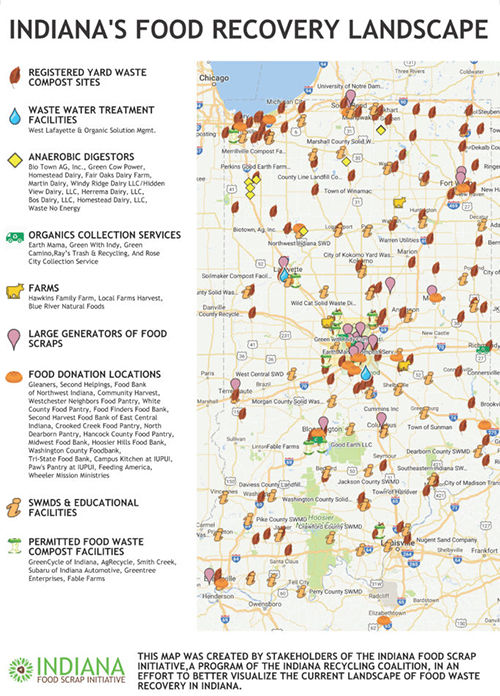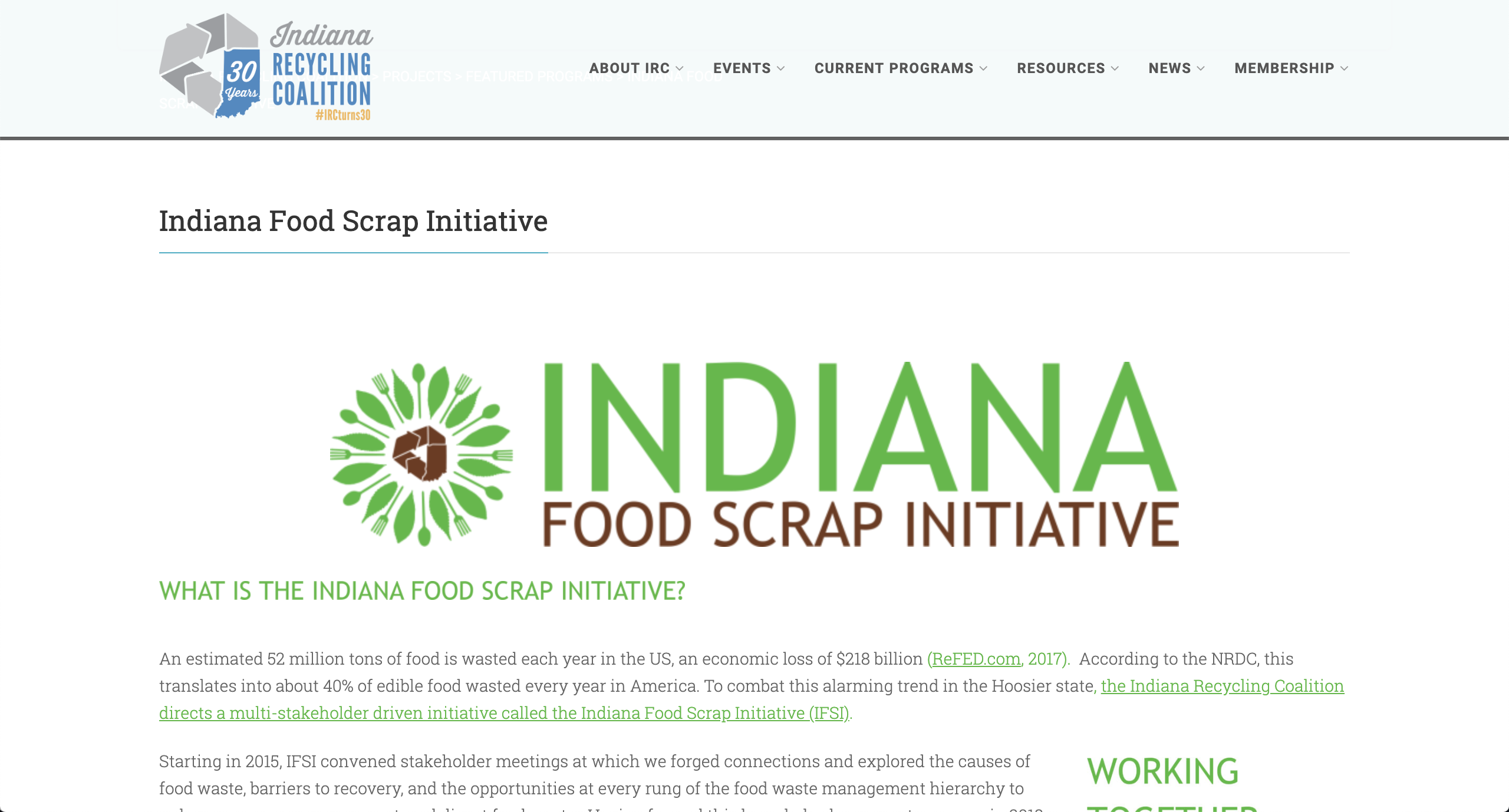The Indiana Food Scrap Initiative is an Indianapolis-based program with a lofty goal: eliminate all food waste in Indiana. The initiative aims to educate Hoosiers about ways to decrease their waste and design programs to meet that goal.
Since its first meeting in 2015, IFSI has focused primarily on bringing together local businesses, universities, government officials and concerned citizens to build a network of people interested in eliminating food waste.
“Once you see the amount of food waste that you are generating and know what is being wasted, that often serves as a very powerful motivator to reduce that waste because food thrown out is not only wasted food but it’s wasted money for that business,” said Julia Spangler, an IFSI stakeholder.
The initiative was designed “with the goal that you go home, and you take the knowledge that you’ve learned, and you create unique solutions in your community,” said Emily Jackson, IFSI director and program manager for the Indiana Recycling Coalition, which oversees IFSI.

The Indiana Recycling Coalition is a not-for-profit that works to reduce waste in Indiana. As a large portion of the state’s solid waste, food waste is of particular interest to the coalition.
Each year, an estimated $218 billion dollars is spent on 63 million tons of food that is discarded or unharvested on farms in the U.S., according to ReFed, a nonprofit formed to decrease food waste. Meanwhile, one in seven American families is food insecure, and the United States Department of Agriculture says food waste has helped make landfills one of the leading producers of methane, a harmful greenhouse gas.
In 2014, Indiana passed a bill enacting a 50% recycling goal, which requires state recycling and composting facilities to report shipments to the Indiana Department of Environmental Management. IDEM is an important IFSI stakeholder because it is able to take what it learns from the group’s network and apply that to reaching the state’s goal at the government level.
IDEM’s involvement with IFSI is helping it “better serve the industry and encourage recovery and reuse,” said Barry Sneed, IDEM public information officer.
In 2018, IFSI began to move from network building to creating initiatives designed to educate Hoosiers on food waste. It adopted a data-driven, results-based accountability model, which established the ultimate goal of eliminating food waste in the state. This system encouraged IFSI members to collect available Indiana food waste data and create tailored strategies to improve current issues.

Three strategy groups focus on the different sources of food waste: source reduction, food rescue and food waste composting.
Spangler volunteered to lead the source reduction group because of her experience as a sustainable events coordinator. In her day job, Spangler works with individuals, venues or organizations to reduce the negative environmental impact of events they host. This includes everything from ensuring an event uses recyclable materials to decreasing excess food and donating the surplus.
A big barrier to success is the absence of food waste monitoring systems in the industry. Some establishments have used such systems successfully to reduce waste, but usage is not widespread.
The source reduction group focuses on the commercial food industry, working with restaurants, event venues and hotels on best practices to eliminate food waste before it even exists.
Stressing a restaurant’s potential cost savings from food waste reduction is an important avenue for IFSI’s success. A study published by Champions 12.3, a coalition of executives working to reduce global food waste, showed that restaurants average a $7 savings for every $1 invested in food waste reduction.
For Spangler, addressing source reduction is a matter of educating businesses on what they can do to monitor their food waste and showing them how beneficial it can be to invest in food waste reduction.
The food waste composting strategy group, led by Jackson, has focused on providing educational information about composting and its benefits.
IDEM reports that only about 2% of Indiana food waste was composted in 2018; however, some of Indianapolis’s largest food waste producers, like Indiana University Purdue University Indianapolis, are working with IFSI to improve composting.
Jessica Davis, director of IUPUI’s Office of Sustainability, is a member of the strategy group and says she hopes the university can help achieve the mutual goal of decreasing food waste through composting.
Davis is looking for inspiration from cities outside of Indianapolis where there has been greater success in composting. She says that through IFSI’s network, stakeholders can find the best solutions for the whole state.
“It’s about setting your dominoes up in a line correctly, so that when you actually hit that first one, it all goes smoothly,” she said. “If you’re missing one or two in that process, that whole thing just falls apart.”
To get their dominoes in a line, the group needs as many stakeholders as possible to share ideas and offer support. As IFSI develops programs to combat food waste through direct action, Jackson is optimistic about the organization’s support and resources. She encourages anyone interested in becoming a stakeholder or learning more about the strategy groups to visit their website.